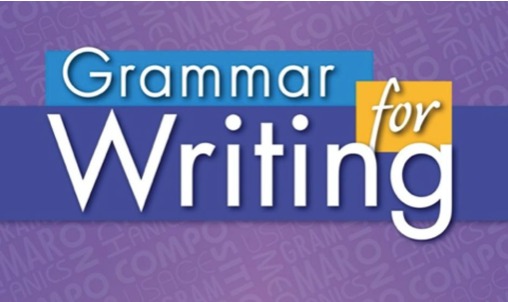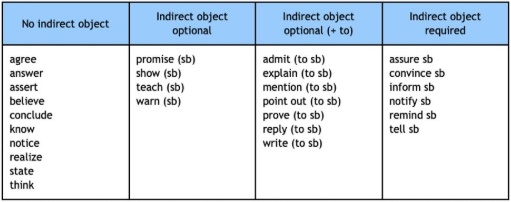好的Assignment创作必须不一样种类语句的适度组成。太多的短句子、简单句会使Assignment创作越来越枯燥无味,而太多的一段话、复杂句则会使创作越来越茂密晦涩难懂。文中paperdaixie.com我为大伙儿共享Assignment创作高級英语的语法使用技巧。

英文Assignment创作中可应用的语句有三种基础种类,即简单句、复合句和复杂句。
一个简单的句子包括一个单独的从句,换句话说,一个从句(一组有主语和形容词的词)自身就可以表述一个详细的观念。
Example:
Academic writing is a difficult.
It takes a long time to learn.
复合句有两个单独的分句,由一个并列连词(for,and,nor,but,or,yet,so)或分号联接。
Example:
Academic writing is a difficult, so it takes a long time to learn.
Academic writing is a difficult; it takes a long time to learn.
复杂句有一个单独的从句和一个或好几个依附从句,依附从句不可以独立变成一个详细的语句。它一般包括三种种类,名词从句、修饰词从句和状语从句。
Example:
Some experts do not agree that global warming is a serious problem. [名词从句]
Burning fossil fuels adds to global warming, which is one of the greatest threats to mankind. [修饰词从句]
He learned academic writing quickly even though it is difficult. [状语从句]
名词性从句
第一种用以建立繁杂语句的依附从句是名词从句。名词从句是当做专有名词的依附从句。有三种种类:that从句、wh-word从句和if/if从句。
1.that从句
that从句是由That这个词延伸而成的,许多情况下这个词经常被省去。
Example:
Scientists have concluded that greenhouse gas emissions are a serious problem.
Experts have warned governments that reduction in fossil fuel consumption is necessary.
Greene (2016) points out that class size is a key factor in school effectiveness.
The lecturer assured us that the topic would not be covered on the test.
英文Assignment创作中有很多形容词后边跟随that从句。下边是一些最普遍的目录。在其中很多是汇报形容词,即用以汇报他人的单词或念头的形容词,及其依据他们是不是必须间接性目标来决策后边是不是带或没有“to”。

子句中动词的时态一般 与积极词(即单独子句中的形容词)的语态相关。假如积极词用在现在时,从句形容词可以用一切适合的语态。假如主句形容词是过去式,从句中的形容词一般 也是过去式。但是这类状况也是有除外,那便是一些“基础方式”形容词,包含:提议;了解;指令;规定;立即;坚持不懈;提议;提议;和督促(advise; ask; command; demand; direct; insist; propose; recommend; suggest; and urge)。也有一些修饰词后边跟随基础方式形容词,比如:可用的;必需的;必需的;关键的;应急的;关键的(advisable; essential; necessary; important; urgent; and vital)。
Example:
It was concluded that lack of attention caused the accident. [Past past]
It is agreed that greater attention to the problem will be needed in future. [Present future]
It is necessary that governments reduce reliance on fossil fuels. [Base form, reduce]
It is recommended that greater precautions be taken in future experiments. [Base form, be]
2.wh-word从句
Wh-word从句由Wh questions构成,由wh-words引进,如who, whoever, what, whatever, where, wherever, when, why, which, how, how long, how much, and how many. 因为这种从句是陈述句(而不是一般疑问句),语序应该是主语 形容词,不应用一般疑问句中应用的助动词(比如do、do或did)。
Example:
It is not known where the epicentre of the earthquake was.
The report explains how alpha waves are detected.
It is not known where the substance originates.
3.if/Whether从句
If/Whether从句由yes/no(是/否)难题组成,并由while或If一词引进。能够加上语句“or not”。一定要注意,Whether比if更宣布,因而在学术研究创作中更普遍。
Example:
The results of the experiment determined whether the drug entered human trials.
The results of the experiment determined whether the drug entered human trials or not.
The results of the experiment determined whether or not the drug entered human trials.
It is unclear if the measurements were completely accurate.
It is unclear if the measurements were completely accurate or not. [NOT ... if or not the measurements...]

修饰词从句
第二种用于高級英语的语法语句是修饰词从句,也称之为关系从句。修饰词从句是当做修饰词的依附从句,换句话说,它装饰专有名词或代词。修饰词从句以下述关系代词之一开始。
Example:
who, whom [for people]
which [for non-humans or things]
whose, that [for humans, non-humans or things]
when [for time]
where [for place]
关系从句能够是约束性的(也称之为限定性的)或者非约束性的(也称之为非限定性的)。约束性从句是必需的,因为它为阅读者鉴别专有名词。分号不用以约束性子句。另一方面,非约束性从句无须用于鉴别专有名词。它仅仅给阅读者出示附加的信息内容。因为它能够省去而不丧失实际意义,因此 它用分号与语句的一部分分离。
Example:
The material which was used in the experiment was impure
[约束性的,由于必须用‘在试验中应用的’这一条文来明确原材料。]
The material from the experiment, which was impure, was weighed twice.
[无限制,由于‘不纯真’一词只出示了相关原材料的附加信息内容。]
简约清爽的题目
第三种也是最终一种用于提升英语的语法水平的是状语从句。状语从句是一种依附从句,用于装饰单独从句的形容词,以出示相关什么时候、何处、为何、怎样、多久或多远的信息内容。它还用以表明饱和度。
状语从句能够在单独从句以前或以后出現。假如在前面,必须用分号隔开这两个子句。假如在后面,就不用分号。
Example:
Whenever a tectonic plate moves suddenly, an earthquake can occur.
An earthquake can occur whenever a tectonic plate moves suddenly.
状语从句有几种不一样的种类。下边列举了不一样的类型,及其详细介绍他们时能够应用在毕业论文中的英语单词。
| Time | when, whenever, while, as soon as, after, since, as, before, until |
| Place | where, wherever, everywhere, anywhere |
| Reason | because, since, as |
| Result | so adjective/adverb that, such a(n) noun that, so much/little noun that, so many/few noun that |
| Purpose | so that, in order that |
| Manner/Distance/Frequency | as, as adverb as, as if/as though Contrast (direct opposition): while, whereas |
| Concession (unexpected result) | although, even though, though |
Example:
Whenever a tectonic plate moves suddenly, an earthquake can occur. [Time]
Consumers tend to shop wherever they can get the lowest price. [Place]
Since individuals lack awareness of the issue, the government needs to raise awareness. [Reason]
The readings were so inaccurate that they had to be discarded. [Result]
Precautions were taken so that the results would be more accurate. [Purpose]
The reactants were placed inside the beaker as quickly as possible. [Manner]
Ordinary writing employs many simple and compound sentences, whereas academic writing uses more complex sentences. [Contrast (direct opposition)]
Even though academic writing uses more complex sentences than ordinary writing, it should still be clear and easy to read. [Concession (unexpected result)]
之上便是paperdaixie.com我为大伙儿共享在assignment创作中应用高級英语的语法方法的所有内容,期待能够协助诸位朋友们在Assignment创作初中会应用高級英语的语法,提升Assignment成绩。




发表回复
要发表评论,您必须先登录。